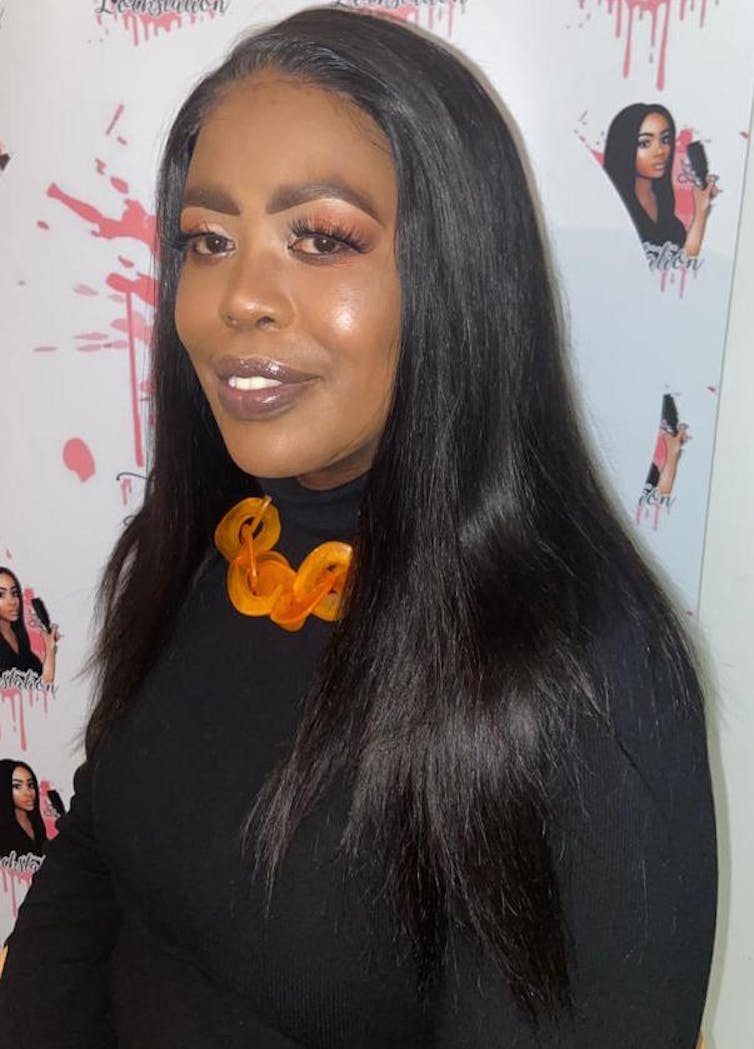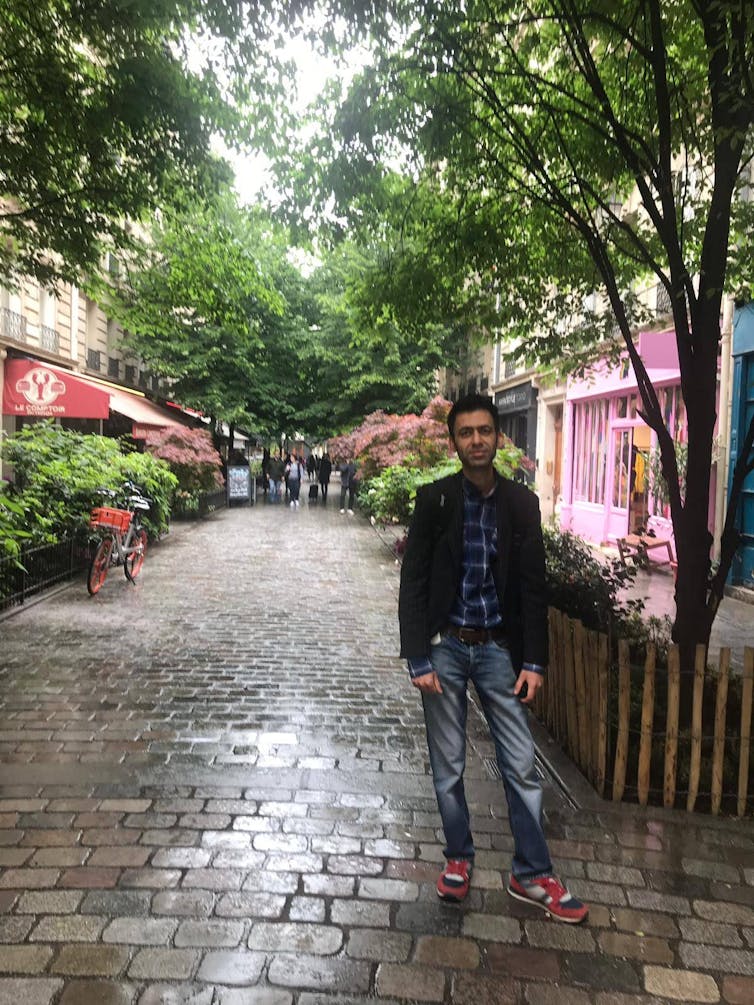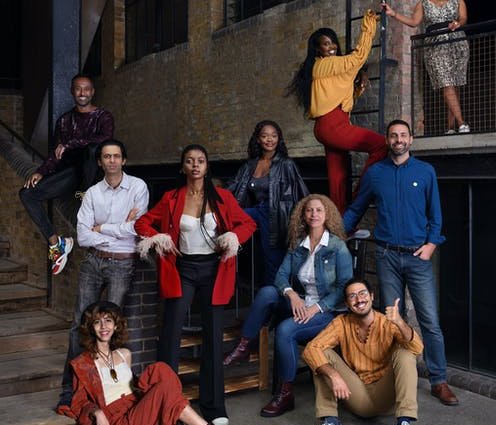“This was never my plan. I love my country”. I was sat with Thomas (not his real name) in a bustling community centre where he volunteers with fellow refugees and asylum seekers. Thomas, in his 40s, is a tall, athletic man. He was directing newcomers towards the lunch station, smiling and answering questions. He offered me a plate and then told me with some pride about one of his defining experiences which happened in 2012. “I had the honour of representing my country in the Olympic Games,” he says, smiling.
Thomas, it turns out, was a Judo master, competing at the highest level and training others. Well respected among the Judo community, his prominence also brought unwanted attention, leading to his flight from his homeland in Africa in 2013. Even now, it is important for his safety that his anonymity is protected.
Sadly, Thomas’ story is far from unique. As the world struggles amid pandemic uncertainty there may be no other group better suited at finding ways to cope than refugees. Restrictions on movement, working and property ownership inhibit the freedom of refugees globally, pushing many into poverty. Yet against this oppressive backdrop refugees show tremendous ingenuity, creating businesses and livelihoods from whatever is available to them.

This article is part of Conversation Insights
The Insights team generates long-form journalism derived from interdisciplinary research. The team is working with academics from different backgrounds who have been engaged in projects aimed at tackling societal and scientific challenges.
Research shows that refugee businesses provide opportunities for those who find that the doors to employment are closed to them – even if they are well qualified for the jobs they apply for. In camps and resettled communities, refugee businesses become hubs providing vital information, support and resources that fellow refugees would struggle to access any other way.
For example, in Kakuma, Kenya’s largest refugee camp, a refugee business is the only source of soap – a vital necessity during a global pandemic. Similarly, in east Belfast, a Syrian bakery provides the daily bread eaten by many Syrian families that was previously unavailable in the local area.
Many of the prerequisites thought essential for starting a business are unavailable to refugees. Unable to access finance, geographically distant from their social networks and sometimes culturally dislocated, there is a tremendous leap required for refugees with start-up ambitions. Initiatives have emerged to support “refugee entrepreneurship” in locations as diverse as London, Germany, France, Netherlands, Rwanda, Iran, Australia, Canada and Japan.
Many of these initiatives began as grassroots support efforts and have grown to meet the demand for business support from refugees. More recently, philanthropic donors and government departments have funded pilot schemes to establish how best to understand the impact of refugee business support.
As a research lead for the Centre for Entrepreneurs (the organisation running a UK-wide Home Office backed pilot scheme) I have encountered a number of these initiatives and met a diverse array of refugee businessmen and women first hand. I have gathered their stories together for a paper which is under review. The people I interviewed were all inspirational in their own way and their accounts were deeply moving. They are stories of hardship and suffering. But, ultimately, they are about survival and hope.
Olympian turned IT technician
Which brings me back to Thomas. “The asylum process broke my dream,” he says, remembering his six years in limbo, awaiting a refugee status decision and the right to remain in UK. He was not allowed to work during that time and lived on £35 a week. He sighs: “It was a very difficult time.” But, determined to do “whatever he could to survive”, Thomas looked for opportunities to stay active and socially engaged.
Read more:
The way we use data is a life or death matter – from the refugee crisis to COVID-19
Although he was no longer paid to train, he taught Judo on a voluntary basis. He became known in the local area and was even invited to share his story at the local university to educate students about racism. He offered IT support to fellow asylum seekers and began to explore the idea of opening an IT business.
He was finally granted refugee status in 2018 and he recalls feeling determined to move forward with life and start a business. “Before I started the pilot, I had to be a one man squad,” he said. “I spent a lot of very late nights trying to make the business work”. Support from the UK pilot scheme brought him closer to realising his ambition and gave him the morale boost he needed to carry on. But he said:
I really felt the fear sometimes … It was difficult to be in the spotlight again. I had spent a long time away from social media, for example, to protect my privacy and safety. But through my volunteering experience at the community centre and now my business, I can see how I can help other people, especially those still struggling through asylum. This is my new dream.“
The financial advisor
I shadow Polly Hargreaves as she sits at a community centre trestle table in Stoke-on-Trent speaking with a young lady who has applied to join the Centre for Entrepreneurs pilot programme. Hargreaves helps advise refugees with an interest in entrepreneurship. She runs through a series of questions in a calm, clear voice before finally delivering the bad news: “I’m afraid until you have your (refugee) status, you are not allowed to join the programme. But please don’t be discouraged, there are a lot of things you can do so that when the time comes you will be ready.”

Polly Hargreaves, Author provided
She runs through a list of ideas that the young woman is allowed to engage with while she is waiting for her claim for refugee status to be decided, including volunteering work and preparing for a driving theory test. She makes sure to add: “I know it is frustrating to wait, I have been there and I can tell you from my experience it is better to use the time wisely.”
Hargreaves, now in her 50s, came to the UK from Uganda more than 30 years ago, arriving alone at 17 with nothing more than a suitcase. She had been separated from her sister on the journey and wouldn’t find her again for several years. As she adjusted to life in the UK she was told that there were certain professions she could do and others that weren’t open to “someone like her”.
But I had a dream to work in banking and finance, and so I got a place at university and worked hard. Eventually, I was able to achieve my dream.
She had worked as a financial adviser for years but was always acutely aware of the challenges and barriers facing refugees. When she spotted a position as an adviser for a refugee entrepreneurship pilot project, she took a leap of faith and left her permanent job, feeling that she was well placed to help refugees wanting to start a business. She told me:
I understand what it is like, it is not easy to start a business, but it can be even harder for people who have faced hardships and knock-backs as refugees. When my clients feel discouraged, I share my story and tell them, if I arrived with nothing but a suitcase and made something of my life, you can do it too. Sharing my story and my experience in business gives them the hope to keep going.
The stand-up coffee producer
As we sit in the sunshine in an eccentric London coffee shop, Usman Khalid shares two things with me. The first is a business card for his socially conscious coffee brand. He tells me he still hasn’t settled on a logo (which as a student of marketing at Birkbeck University, is something he is keenly focused on). The second thing he presents is a video of his stand-up comedy routine. I could easily be watching a seasoned comedian on Netflix. His on-stage persona is relaxed and understated like the man I now share coffee and cake with. He has the audience in stitches.
As we chat it becomes apparent that his business, his enrolment as a UK student and his love of comedy are the recent developments in the longer story of his resettlement. Originally from Pakistan, he sought asylum 13 years ago – a harrowing process that he never imagined would take 11 years. “The horrors of asylum are a story for another time,” he says.
I’m not a refugee as a person, this is just my immigration status. It doesn’t mean anything on a personal, fundamental level.
Instead, he prefers to tell me about his plans for the future and his experience with The Entrepreneurial Refugee Network. He speaks often about his warm relationship with a business buddy assigned to support him as he developed his idea. “His surname is Short but he is very, very tall” jokes Khalid. “He is a great guy. He’s helped me develop and test my business. He helped me to update my CV so I can apply for a job. He even invited me to his house for dinner.”
He explains that this kind of support has been vital following the demoralising experiences he had as an asylum seeker that damaged his confidence. He is open about the personal ramifications of 11 years of asylum.
Some days I would be full of energy and others days I just couldn’t get out of bed and face the world.
He explained that during these times “my buddy and the business support team stuck with me so that at no point did I need to feel anxious or nervous”. Khalid is also a member of the Anqa Collective, a marketplace for refugee businesses (he and other Anqa members can be seen in the article’s lead image). As we wrap up our conversation and talk about plans for the Christmas break, he says he will be travelling to Paris. He has tried to book the trip several times but always backed out feeling too nervous to travel after such a long time. A couple of weeks later he sends me pictures and a message saying “my trip to France”.

Usman Khalid, Author provided
Caterer and human rights campaigner
Majeda Khoury is used to meeting and making connections over food. She runs a catering business in London and speaks with enthusiasm about the ability of food to cross cultural barriers and unite people. But she did not start out with a passion for either business or cooking. Her main interest is raising awareness of human rights issues in her native Syria.
In 2015 Khoury was imprisoned after she helped to feed refugees arriving in her city from other parts of Syria. The government, like other groups, was accused of using food as a weapon and preventing supplies reaching areas where people opposed it. But as a Christian woman, Khoury could pass through checkpoints. And so she used to smuggle bread to feed people because she refused to watch them starve. Fearing for the safety of her own family, Khoury fled to neighbouring Lebanon, leaving her sons behind with their father when they were 13 and 15.
She then fled to the UK and explains how she found herself in the asylum system without her sons, without any friends and – critically – with a very limited ability to understand English.
But I worked very hard. I practised everyday to improve. I also joined in with a cookery class for refugees hosted by Migrateful, so that I could meet other people. I was alone here. Migrateful recognised my skills and invited me to cater for a special event.
The event in question had 100 guests for whom she provided a simple soup from her home country. As part of the evening she spoke to the guests about a besieged area of Syria that was receiving very little attention or aid.
I told them, people there don’t even have this soup to eat. Children are dying. I used Zoom to introduce them to a doctor in the area who talked about the difficulties. I asked them to write to their MP and provided them with some paper.
She describes the 100 letters that were sent which prompted the government to invite her to parliament, resulting in the rescue of 29 children from the besieged city of Ghouta. She explains that attending the entrepreneurship programme gave her the skills she needed to turn these early experiences into a working business, that exists not only to provide her and her sons with a living (they subsequently joined her), but also provides a platform for her activist message to be heard.
The COVID-19 effect
The notion of setting up a business as a refugee is a little like setting up a business in a pandemic. On the face of it, there is just too much uncertainty for business to be a viable option. Yet the people I spoke to and others like them overcame the uncertainty and rebuilt dignified livelihoods.
By focusing on their businesses these refugees nurtured a sense of autonomy after enduring years of feeling like their lives were not theirs to control. Starting a business enabled them to make use of core competencies and learn new skills. And, as they established businesses they developed new relationships that supported their sense of belonging.
My research also found that, although “starting up” wasn’t right for everyone, involvement in business support initiatives spurred a wide range of positive outcomes, including further education and finding decent employment opportunities. Although some markets remain inaccessible during the pandemic, many refugees have been defying the odds and steadily launching businesses or taking other positive steps towards being ready to launch when the time is right.
Refugee entrepreneurship initiatives around the world are reinvigorating long standing conversations between public and private sector partners about how to engage with and support people emerging from uncertain and turbulent experiences. For example, the Global Compact on Refugees is looking to public private partnerships to “enhance refugee self reslience”.
The notion that entrepreneurship offers a route to greater autonomy has the potential to resonate across other sectors supporting marginalised groups. The refugee community has shown that entrepreneurship is not exclusively the domain of people with extensive networks – it also can help people build new networks. It is not only for those with abundant self-confidence and opportunities – it can also be for those who wish to build self-confidence to change their lives. Seen in this light, refugee entrepreneurs and communities are trailblazing paths out of uncertainty and can provide tremendous insight and inspiration at this unique and challenging time.

For you: more from our Insights series:
-
Thousands of unidentified Zimbabweans lie in secret mass graves – and I want to find them
-
The future of periods can now be sustainable and cheap
-
Mammoth task: the Russian family on a resurrection quest to tackle the climate crisis
To hear about new Insights articles, join the hundreds of thousands of people who value The Conversation’s evidence-based news. Subscribe to our newsletter.
![]()
Michelle Richey received funding through the Centre for Entrepreneurs to conduct a UK pilot on behalf of the Home Office. She was also awarded a Capacity Building Grant by the British Academy of Management and Society for Advancement in Management Studies.











